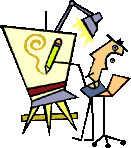| CONCURSO DE CARTELES: Niños-soldado (“Día mundial contra la utilización de los niños soldado”) Se convoca el I concurso de carteles en el ámbito de los derechos humanos y la promoción de los mismos, con el tema de los niños-soldado y para favorecer y ayudar a su completa erradicación, concienciando a los jóvenes escolares de su existencia. Participantes: Jóvenes escolarizados en Leganés. Se establecen tres categorías: A- Primer ciclo de ESO. B- Segundo ciclo de ESO. C- Bachillerato y ciclos formativos. Entrega de Trabajos: Máximo de dos trabajos por participante. Los trabajos se entregarán con los datos completos: nombre-apellidos, edad, teléfono, curso y centro. Estos datos aparecerán por detrás del cartel. Plazo de entrega: Hasta 13 de Enero Lugar de entrega: se entregarán en el IES al que pertenezca cada alumno. Exposición: Centro Cultural Saramago. Entrega de premios el 10 de Febrero Temática: Los trabajos deberán ser originales y se basarán en el tema “LOS NIÑOS SOLDADO” Técnica: LIBRE Formatos: DIN-A2 CARTULINA Página: 42 x 59,4 cm Devolución de los trabajos no premiados: Podrán ser recogidos en el IES donde se haya concursado. |
Un blog para las clases de Educación Plástica, Visual y Audiovisual, bilingües de 2º de E.S.O.... y más. Vuestro blog, vuestros trabajos, vosotros.
Páginas
- BLOG: Pág. Principal
- Students freetime Gallery
- Un viaje para tod@s
- London Corner
- Endicott Corner (Beverly, Boston, MA)
- ART VOCABULARY
- ART GRAMMAR
- Irish ART
- Californian ART
- Wisconsin ART
- Australian ART
- Virgin Islands ART
- North Carolina Art
- Native American ART
- Texas ART
- Hindu ART
- Art Movements
- Art - Pillow face
- Art - Artistopoly
- Lesson Plans
- CLIL-AICLE
- PLASTI-PLE
- TUTORÍAS ESO
- Art and Maths
- Encuesta final curso
- Evaluación y Criterios de Calificación EPVA
- Contactar con la profe
Tuesday, 30 November 2010
Soldier Kids Poster Contest
We are going to participate in a contest. So, our next task will be:
Labels:
contest,
graphic design,
image,
soldier kids poster contest,
tasks 2010-2011,
visual language
Sunday, 21 November 2010
Your tasks: Manipulating by hand an image
1ºA - MANIPULATING AN IMAGE on PhotoPeach
1º B - MANIPULATING AN IMAGE on PhotoPeach
1º B - MANIPULATING AN IMAGE on PhotoPeach
Visual perception activities
Eye Exercises for Better Visual Health:
These activities are designed for improving your Visual Information Process Skills: Perception, Tracking, Focusing, and Eye Teaming.
Image and Perception

Do not forget!
- Task 1: Find in the magazines in the classroom 4 images of the different finalities we have studied. Cut them out and glue in a piece of paper.
- Task 2: Manipulating an image. Find a large photograph you like: a favourite musician, car, landscape... Cut your picture into horizontal or vertical strips. Make the strips as wide as you like. Create a feeling of distortion by guing the strips onto the space provided, using a certain order you have previously decided. For example, light to dark, different heights, every third strip upside down, etc. Although it is a simple activity, it can have interesting results if you first think about what effect you wish to create.
Friday, 19 November 2010
Sand art
Let's see if you like this video. You can practice next summer on the beach, but, if you cannot wait for that, use a table and flour, although I'm afraid it will not be the same.
If you want more information about this Israeli artist, Ilana Yahav, and have a look to her work, you can visit her website here.
Another one that Andrew has told me:
If you want more information about this Israeli artist, Ilana Yahav, and have a look to her work, you can visit her website here.
Another one that Andrew has told me:
An activity for the computer classroom
Be a sand artist
I know that it is not the same, but there is an online software to create your own sand picture. Its name is thisissand. Use the mouse to start and the sand begins to fall. To change the colour use the letter "C" in your keyboard, to erase what you have done use the letter "E", and with the arrows you will use the different colours you have selected before. Try, its funny!

And... this happened:
SAND ART everywhere in our classroom.
Language and visual communication
We are surrounded by images ...
Sunday, 14 November 2010
Your tasks: Imaginary people and animals
IMAGINARY PEOPLE AND ANIMALS' SKETCHES
+
COMPOSITION SKETCHES
=
FINAL WORK
1ºA
1ºB
Create your own video slideshow at animoto.com.
Subscribe to:
Comments (Atom)






